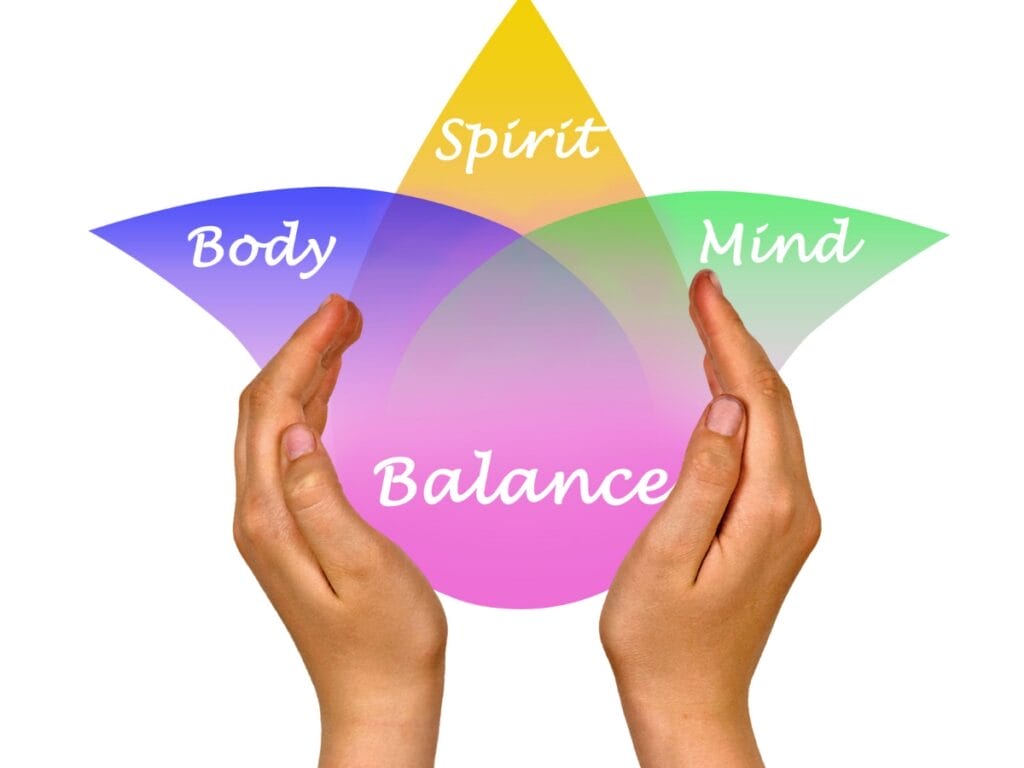I’m a firm believer that self-care truly impacts our mental health and overall confidence. But what exactly is self-care? It’s a broad term that envelops various practices aimed at taking care of our physical, emotional, and mental well-being. Each form of self-care adds to a peaceful mind and an uplifted spirit, essential factors for self-assurance.
Understanding The Link Between Self Care And Confidence
When I prioritize my well-being through self-care, I notice an undeniable boost in my self-esteem. This isn’t mere coincidence. Psychologists affirm that regular self-care routines foster a positive self-image, which is tightly linked to confidence.

Small actions, such as a daily meditation or a brisk walk, have the power to change our brain chemistry, increasing self-appreciation and courage.
Introducing self-compassion into your self-care regimen can work wonders. I see self-compassion as treating oneself with the same kindness and understanding that one would offer a good friend.

This nurturing attitude towards ourselves reinforces a secure sense of self-worth and equips us to handle life’s challenges with more resilience. Before moving on, remember this: self-care isn’t selfish. It’s a necessary discipline for a healthy, confident life. As we explore practical self-care strategies in the next section, understand that these are not just tips, but tools for transformation—each action a step towards a more confident you.
Practical Self-Care Strategies for Mental Wellness
Establishing a consistent daily self-care routine is essential. I find that a stable routine promotes discipline and acts as a scaffold for building confidence. It provides structure in a life that can often feel chaotic, ensuring that you dedicate time each day to your own wellbeing.
Mindfulness And Its Role In Self-Awareness
Imagine your mind as a garden that needs regular tending. Mindfulness is like watering this space, nurturing peace, and self-awareness.

It’s about being present in the now rather than being hostage to worries about tomorrow or regrets of yesterday. Practical exercises, such as meditation or just taking a few deep breaths, can help clear the mind, much like pruning overgrown branches.
Exercises
Let’s not forget exercise, which has a dual impact on our mental and physical health. Regular physical activity can forge pathways to a more resilient mind. It’s known to release endorphins, which are chemicals in the brain that act as natural painkillers and mood elevators.
The Importance Of Restorative Sleep
Sleep mustn’t be overlooked. Quality sleep acts as a reset button for the brain, enabling recovery from mental and physical exertion. A well-rested mind is better equipped to handle stress and is more likely to maintain a confident outlook.
Nutrition’s Impact On Mood And Self-Perception
Diet also plays a role in self-perception and mood. Foods rich in omega-3 fatty acids, for instance, have been linked to reduced rates of depression. A balanced diet can fuel both body and mind, giving you the energy you need to tackle challenges with confidence.

As I suggest these strategies, remember that self-care is personal. What works for one person might not work for another. The key is to find activities that you enjoy and that bring positive benefits to your mental health.
Overcoming Barriers to Effective Self-Care
Recognizing the hurdles in your self-care journey is a critical step toward building lasting confidence.
Negative Self-talks
Often, you may find yourself hindered by negative self-talk, which can sabotage your efforts. Inner dialogue begins with awareness and is followed by actively challenging unhelpful thoughts.
Goal Setting Barriers
Many people find themselves setting self-care goals that are too ambitious, leading to disappointment. If this resonates with you, consider breaking your goals into more manageable steps. This approach helps in maintaining motivation and allows for regular, sustainable progress.
Time Management
Another common challenge is time management. With busy lives, it can feel almost impossible to find time for self-care. However, one effective strategy is to prioritize activities that yield the highest mental health benefits for you. It might mean saying no to low-priority tasks or delegating to make space for self-care in your daily schedule.
It’s essential not to hesitate to seek support if self-care feels too challenging to handle alone. Support can take many shapes, from talking to a friend about your self-care journey to seeking professional guidance. Remember, reaching out is a strength, not a weakness – it’s part of taking charge of your mental health.
Maintaining Confidence Through Continued Self-Care
The journey of self-care is ongoing, and so is the process of maintaining the confidence it nurtures. Adaptability is key. As life throws new challenges your way, your self-care routines might require tweaking. Resilience is not inherent; it’s built over time through consistent practice. Every step you take to care for your mental health strengthens your resilience.

This, in turn, fortifies your confidence, even when circumstances are tough. It’s also essential to recognize and celebrate every achievement, no matter how small. Acknowledging growth fosters a positive self-image and propels you forward.
And remember, self-care isn’t selfish. It’s a necessary aspect of your overall well-being. Keep learning about what works best for you and adjust accordingly. Avoid being hard on yourself if some days are more challenging than others. Treat yourself with the same empathy and kindness that you would offer to others.
In conclusion, self-care is an investment in yourself that pays dividends in the currency of confidence. By evaluating and adapting your self-care strategies regularly, embracing resilience, and celebrating your progress, you can maintain and grow your confidence. Your mental health is priceless, and nurturing it with ongoing self-care is among the most valuable choices you can make.


Hi Sipheni,
Thank you for sharing this article. I found it really helpful to learn about the importance of self-care for mental health. I especially appreciated the tips on how to relax and recharge, as well as the advice on reducing stress triggers.
As a man, I am always told to look out for my stress levels as having too much stress can take its toll on testosterone levels, which is detrimental to a man’s overall health and well-being.
Taking time to unwind and not let stress build up is crucial.
Glad you’re prioritizing self-care, Yusuf. The impact on testosterone is just one example of how neglecting stress wreaks havoc on our overall health. Remember, every small step – a relaxing activity, identifying triggers – fuels your well-being, so keep up the great work!
Wonderful and very informative article. Taking good care our ourselves is certainly a must especially when life keeps knocking us down with tough day-to-day challenges. Life can surely throw a lot at us but having a good and positive mentality can certainly help all overcome life’s hardships.
Every day I make sure I take the time to take good care of myself through exercise, good eating, and mindful meditation which helps me keep a healthy mentality and positive attitude.
I agree with you 100% that all the small things and the steps we take to improving self care are totally worth it for the long haul.
Thanks for sharing
You’re absolutely right. Small, consistent steps toward self-care are the building blocks of resilience. I’m so glad you resonate with the article and find exercise, good food, and meditation helpful – they’re champions for a positive mindset! Keep inspiring yourself and others, and thanks for sharing your supportive thoughts.